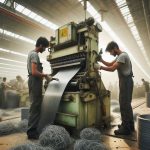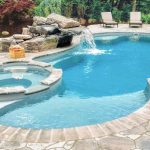India has become a worldwide centre for high-quality forged components for industries that demand strength, accuracy, and best mechanical performance. The process of forging metal involves reshaping heated metal using compressive forces. Forged components provide greater strength, toughness, and wear resistance than cast or machined components. Indian manufacturing of forged components is accomplished using advanced and sophisticated forging processes and metallurgical knowledge to provide components for the military/aerospace, automotive, oil & gas, power generation, and heavy machinery industries.
Understanding Forged Components
A forged part is formed using controlled compressive forces on heated metals, with stainless steel, alloy steel, and bronze being common material choices. The metal is eventually formed into high accuracy shapes as the internal grain structure becomes denser and more consistent, which tends to eliminate many of the voids and irregularities that are common in other manufacturing processes. Ultimately, forged parts should generally possess mechanical strength, fatigue resistance, and lifespans that are superior to that of fabricated parts. Precision forged parts can usually be produced to tight tolerances and acceptable surface finishes, thus reducing post-processing costs as well.
Common Types of Forged Components in India
Forging manufacturers in India create an extensive variety of products that are developed for several industrial applications. Components like flanges, fittings, and valves are for pipelines and process industries, shafts, gears, and couplings are used in mechanical assemblies, pump and compressor components are manufactured for industrial operations, and fasteners, bolts, and connectors are produced for structural and mechanical applications. Ring forgings, discs, and heavy-duty block forgings are also produced for machinery and equipment, giving high strength, durability, and reliability that support longer working conditions in mechanical applications in multiple industrial sectors.
Advantages of Forged Components
Forged components offer many benefits over other manufacturing methods that are especially advantageous for heavy-duty industrial applications. The forging operation directs the flow of the metal’s grain structure and results in a stronger and tougher part that allows the part to resist greater amounts of stress and heavier loads. Forged components also enhance the wear and fatigue resistance of the component, so that even during repeated loads and friction through the interfaces of use, the component does not deform and maintains its shape, extending operational life. Additionally, various steel materials such as stainless and bronze retain or may even improve upon their natural corrosion resistance when forged. This insight into the forging process allows the user to have confidence in using the forged part in less than perfect environments knowing the intrinsic corrosion resistance of the material still holds even after the forging process when using casting or after machining the part.
Moreover, precision-forged components have a good dimensional accuracy and surface finish to decrease machining, or other secondary operations, with increasing levels of precision based on the manufacturing process being used. The cumulative benefits of forged components increase the life of the part, increase durability, and reduce operational costs, and down-time.
Applications Across Industries
Forged components from India are used in a number of industries requiring the highest precision, strength, and consistency. In aerospace, you have forged engine parts, landing gear and hydraulic components that require the strength and precision. In automotive and transportation, forged shafts, gears, and suspension components can help with maintenance safety factors and performance. In oil and gas and petrochemical applications, forged valves, flanges, and fittings give strength with the extremes of pressure cycles, high temperatures and corrosive environments. In power generation forged turbine shafts and rotor and heat exchanger components are made with durability and thermal stability. Forged parts composed of structural components, bearings, and couplings are used in heavy equipment applications for wear-resistant strengths and service life.
Choosing a Forged Components Manufacturer in India
Reputable manufacturers have built trust, and can often provide quality assurance standards that demonstrate safety, traceability and reliable performance based on agreed-upon levels of work such as ISO, ASTM and ASME standards. Manufacturers that provide total service from design, forging, machining, heat treatment and finishing are another valuable tool to minimizing lead times, providing high-performance components and streamlining the process for manufacturers looking to purchase ready-to-use components.
Final Thoughts
Forged components India provides reliable, durable and highly precise solution for specific industrial sectors in customized ways. By purchasing components from experienced, well-established Indian forging houses, companies will obtain premium, top-of-the-line pre-forged parts which consistently provide superior mechanical performance properties and extended service life. With a wealth of knowledge and experience in advanced technologies and strict quality assurance processes, the Indian pre-forging industry remains a trusted supplier of pre-forged parts that serve the betterment of the industry globally.



